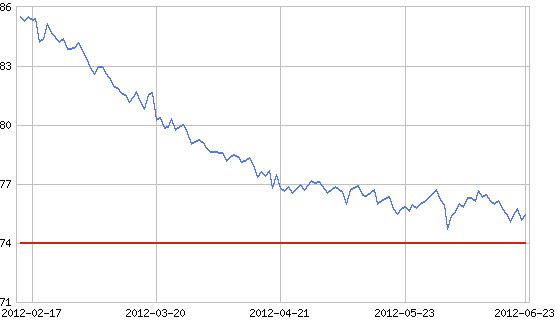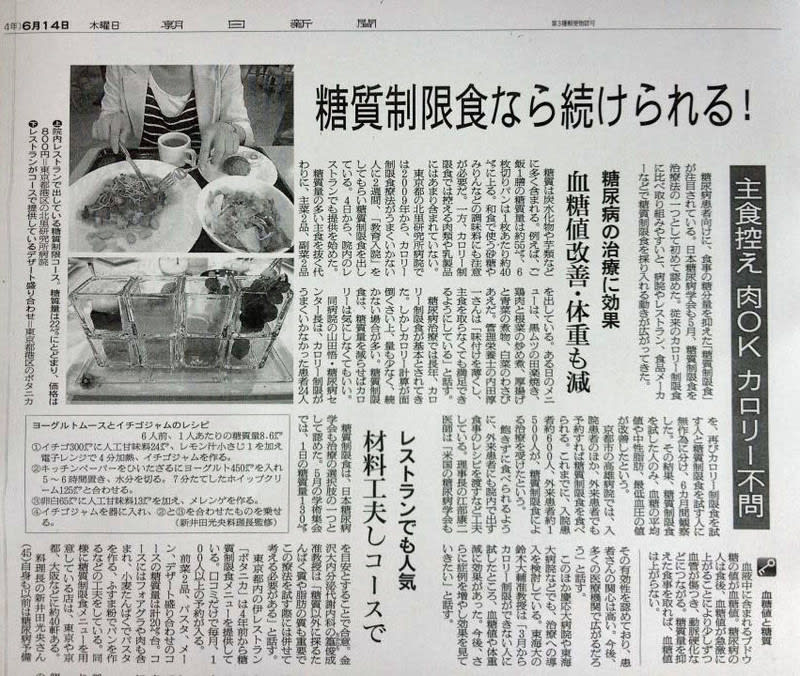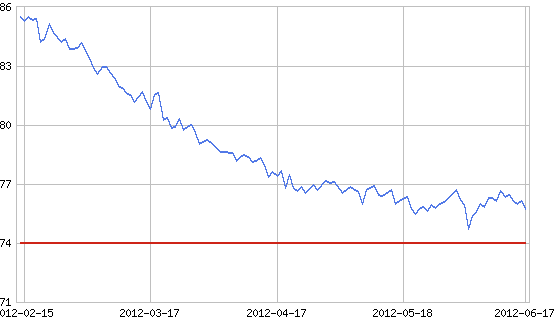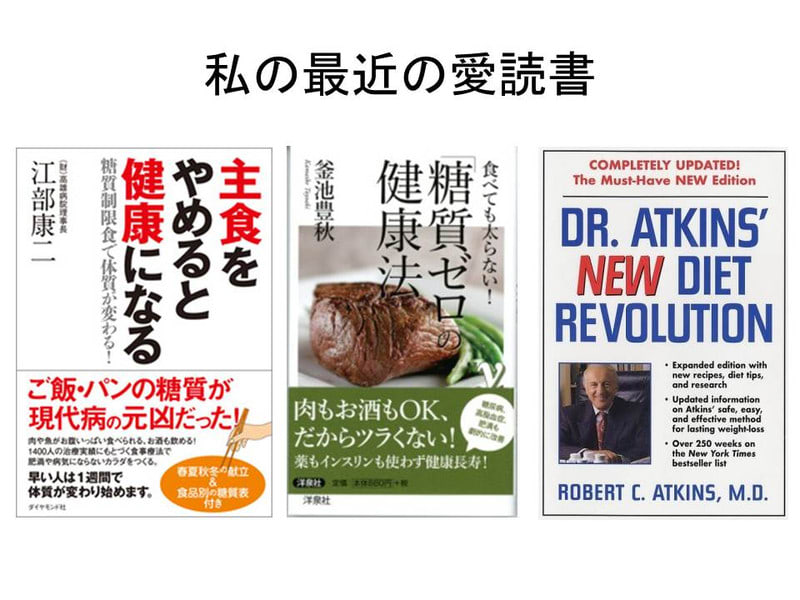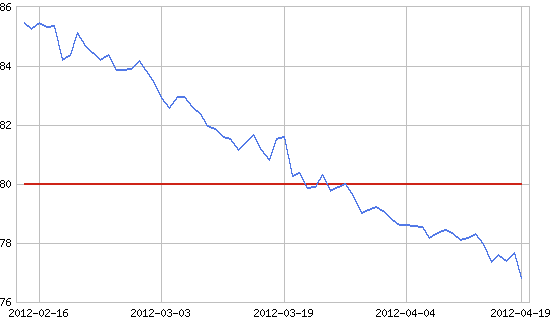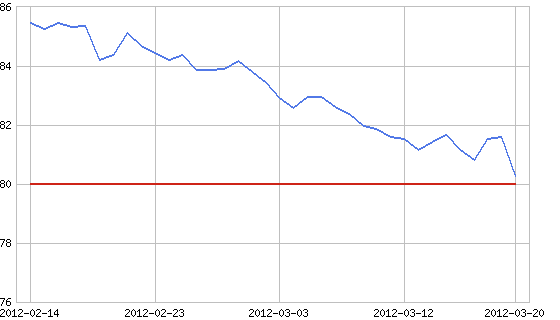炭水化物(糖質)制限食は体重減少効果があり、日本でも広まりつつありますが、この食事療法を長期間続けることによる健康に対する悪影響の可能性もあり慎重論が多いことも事実です。
極端な炭水化物(糖質)制限食として知られるアトキンスダイエットで、心筋梗塞や脳卒中、動脈硬化などの心血管疾患が増加することが従来より指摘されています。
ギリシャ・アテネ大学医学部の研究チーム(Pagona Lagiouら)は、スウェーデンの女性43396人を約15年間観察したところ、糖質摂取量の低下、あるいはタンパク質摂取量の増加は心血管疾患に関する事故(心血管イベント)に関連していたと、2012年6月26日付の英医学誌British Medical Journal(BMJ)に報告しました。
私自身も最近になって炭水化物(糖質)制限食を実践し始めた一人ですが、この食事療法を開始した直後より、肥満、高血圧、高脂血症などの生活習慣病に対する改善効果が認められ、これを続けることによるストレスもほとんど感じません。自分自身としては、元の体の状態に逆戻りするよりは現状の体の状態を維持する方がはるかにましだと思うので、とりあえずはマイルドな糖質制限食(1日の糖質量130gまで、1食あたりの糖質量<wbr></wbr>20~40g、カロリー制限なし)を継続してみようと考えてます。
****** PubMed (US National Library of MedicineNational Institutes of Health) Free PMC Article
BMJ. 2012 Jun 26
Low carbohydrate-high protein diet and incidence of cardiovascular diseases in Swedish women: prospective cohort study.
Lagiou P, Sandin S, Lof M, Trichopoulos D, Adami HO, Weiderpass E.
Department of Hygiene, Epidemiology and Medical Statistics, University of Athens Medical School, 75 M. Asias Street, Goudi, GR-115 27, Athens, Greece.
Abstract
OBJECTIVE: To study the long term consequences of low carbohydrate diets, generally characterised by concomitant increases in protein intake, on cardiovascular health.
DESIGN: Prospective cohort study.
SETTING: Uppsala, Sweden.
PARTICIPANTS: From a random population sample, 43?396 Swedish women, aged 30-49 years at baseline, completed an extensive dietary questionnaire and were followed-up for an average of 15.7 years.
MAIN OUTCOME MEASURES: Association of incident cardiovascular diseases (ascertained by linkage with nationwide registries), overall and by diagnostic category, with decreasing carbohydrate intake (in tenths), increasing protein intake (in tenths), and an additive combination of these variables (low carbohydrate-high protein score, from 2 to 20), adjusted for intake of energy, intake of saturated and unsaturated fat, and several non-dietary variables.
RESULTS: A one tenth decrease in carbohydrate intake or increase in protein intake or a 2 unit increase in the low carbohydrate-high protein score were all statistically significantly associated with increasing incidence of cardiovascular disease overall (n=1270)-incidence rate ratio estimates 1.04 (95% confidence interval 1.00 to 1.08), 1.04 (1.02 to 1.06), and 1.05 (1.02 to 1.08). No heterogeneity existed in the association of any of these scores with the five studied cardiovascular outcomes: ischaemic heart disease (n=703), ischaemic stroke (n=294), haemorrhagic stroke (n=70), subarachnoid haemorrhage (n=121), and peripheral arterial disease (n=82).
CONCLUSIONS: Low carbohydrate-high protein diets, used on a regular basis and without consideration of the nature of carbohydrates or the source of proteins, are associated with increased risk of cardiovascular disease
****** 読売新聞、2012年7月7日
低炭水化物ダイエットご用心
心筋梗塞、脳卒中の危険 ハーバード大など発表
炭水化物を制限する食事を長期間続けると、心筋梗塞や脳卒中になる危険性が高まるとの研究を、ハーバード大などのグループが英医学誌「ブリティッシュ・メディカル・ジャーナル」に発表した。炭水化物を減らすダイエットが日本でも広まっているが、慎重に取り組む必要がありそうだ。
同研究グループは1991~92年、スウェーデンの30~49歳の女性4万3396人の食生活を調査し、その後平均約16年間、心筋梗塞や脳卒中などの発症を追跡調査した。
1270例の発症例を、炭水化物とたんぱく質の摂取量によって10段階に分けて分析。炭水化物の摂取量が1段階減り、たんぱく質の摂取量が1段階増えるごとに、それぞれ発症の危険が4%ずつ増えた。一般的に炭水化物を制限する食事では高たんぱく質になる傾向がある。低炭水化物・高たんぱく質のグループでは、そうでないグループに比べて危険性が最大1.6倍高まった。
同誌に掲載された論評では、低炭水化物の食事は、食物繊維やビタミン、ミネラルを減らすとともに、高たんぱく質だとコレステロール、飽和脂肪酸などが増え、危険性が高まるのは不思議ではないとしている。
国立国際医療研究センター(東京)の野田光彦糖尿病研究連携部長は「低炭水化物の食事の体重減少効果は、長期的な健康影響についてはあまり検証されておらず、注目すべき研究だ。日本人でも、健康への長期影響を検証することが必要だ」と話している。
(読売新聞、2012年7月7日)



























